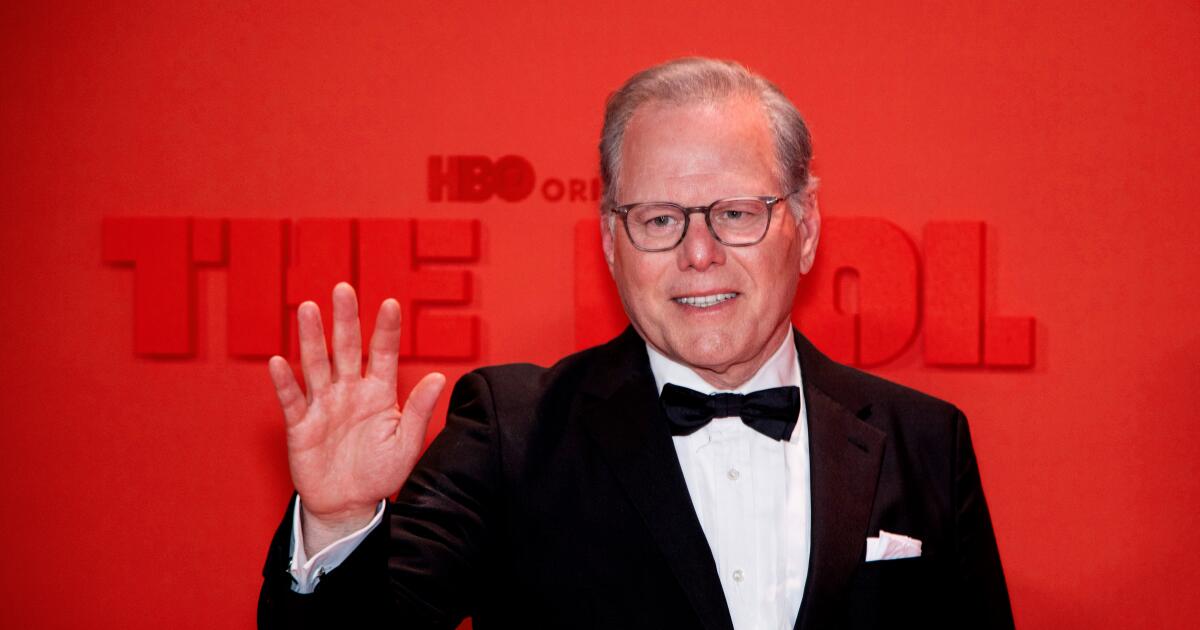Warner Bros. Discovery posted disappointing first-quarter results despite growth in streaming.
But the stock rose Thursday on renewed speculation that the company will spin off its slipping cable channels.
Late last year, David Zaslav-led entertainment Warner Bros. Discovery divided its business into two divisions to separate its troubled but still profitable cable channel business.
One division is anchored by its Burbank film and TV studios, HBO and streaming. The second contains the company’s large stable of cable networks, which include CNN, Cartoon Network, HGTV and TLC.
On Thursday, the company’s stock opened lower on the financial results, but jumped 5% after CNBC reported the company may shed its cable channels. By midday, shares were trading at about $9.
Traditional entertainment companies, including Warner Bros. Discovery and Paramount Global, have struggled amid investors’ recognition that younger consumers have little interest in cable TV, which has long provided a firm financial foundation for TV companies.
The problem is particularly acute for Zaslav, who has spent nearly a decade bulking up his portfolio with costly acquisitions that added more channels.
Wall Street wants firms to pare back. Competitor NBCUniversal plans to spin off its cable channels, including CNBC, MSNBC, USA and Golf Channel, later this year into a new publicly traded company called Versant.
On the earnings call, Zaslav declined to say whether a spinoff at his company was in the works.
“We can move quickly if we decide to change,” Zaslav said.
The company posted a net loss of $453 million, which underscored continued struggles in key business units, including lower television advertising at its cable channels.
The firm lost 18 cents a share on an adjusted basis, which was worse than analysts expected. Still, the result was an improvement over last year’s first quarter, when Warner Bros. Discovery lost nearly $1 billion.
The company generated $8.98 billion in revenue in the most recent quarter, missing analyst estimates of $9.61 billion.
During the first quarter, the cable channels revenue declined 7% to $4.8 billion.
The company added 5.3 million streaming subscribers during the first quarter, which featured the third season of HBO’s exotic resort murder series, “The White Lotus,” and the Max hospital drama, “The Pitt.”
The streaming unit, which includes the HBO linear channel, now has 122 million customers. Streaming revenue grew 8% to nearly $2.7 billion in the quarter, and its adjusted earnings came in at $339 million, up from $86 million in the year-earlier period.
“Our commitment to high-quality storytelling… continues to be the engine that powers Warner Bros. Discovery,” Zaslav told analysts.
The company’s Burbank film studio didn’t match the success of last year’s “Dune: Part Two.” Its big release for the quarter, Bong Joon Ho’s science fiction movie “Mickey 17,” starring Robert Pattinson, struggled to break even.
“Mickey 17” had a reported budget of $118 million, and the studio spent millions more in marketing. Worldwide ticket sales reached $132 million.
Studio revenue, which includes television production and video games, dropped 18% to $2.3 billion in the first quarter.
Earlier this spring, there were reports that Zaslav was getting impatient with his film studios leadership team.
But the studio began its second quarter with a bang: “A Minecraft Movie,” a blockbuster that has topped $875 million in global ticket sales. Ryan Coogler’s “Sinners” followed and is nearing the $250-million mark.
“We’re going to have an absolutely amazing second quarter,” Chief Financial Officer Gunnar Wiedenfels promised analysts.
Since Zaslav and his team from Discovery took over the Warner businesses three years ago, the company has pivoted its strategy sharply.
Previous owner AT&T spent billions to launch HBO Max in a bid to lean into HBO’s reputation for high quality. Zaslav’s team ditched HBO from the title in an attempt to appeal to a wider audience.
Executives slashed programming and instituted multiple rounds of staff cuts.
Programmers ordered series with broad-based appeal like “The Pitt,” which has been a strong performer for Max.
The company refused to spend big to retain the National Basket Assn., and so it will lose those rights for its TNT channel this fall.
“In the end, sports is a rental business,” Zaslav said. “We don’t want to flood the zone …. It’s all about harvesting our [intellectual property].”
Now, Zaslav said, the company is focused on producing less content. It hopes to return to an era when the company was known for its high-quality films and shows from HBO and Warner Bros.
Last year, Zaslav’s compensation package increased to $52 million, despite the rocky year for his company.

